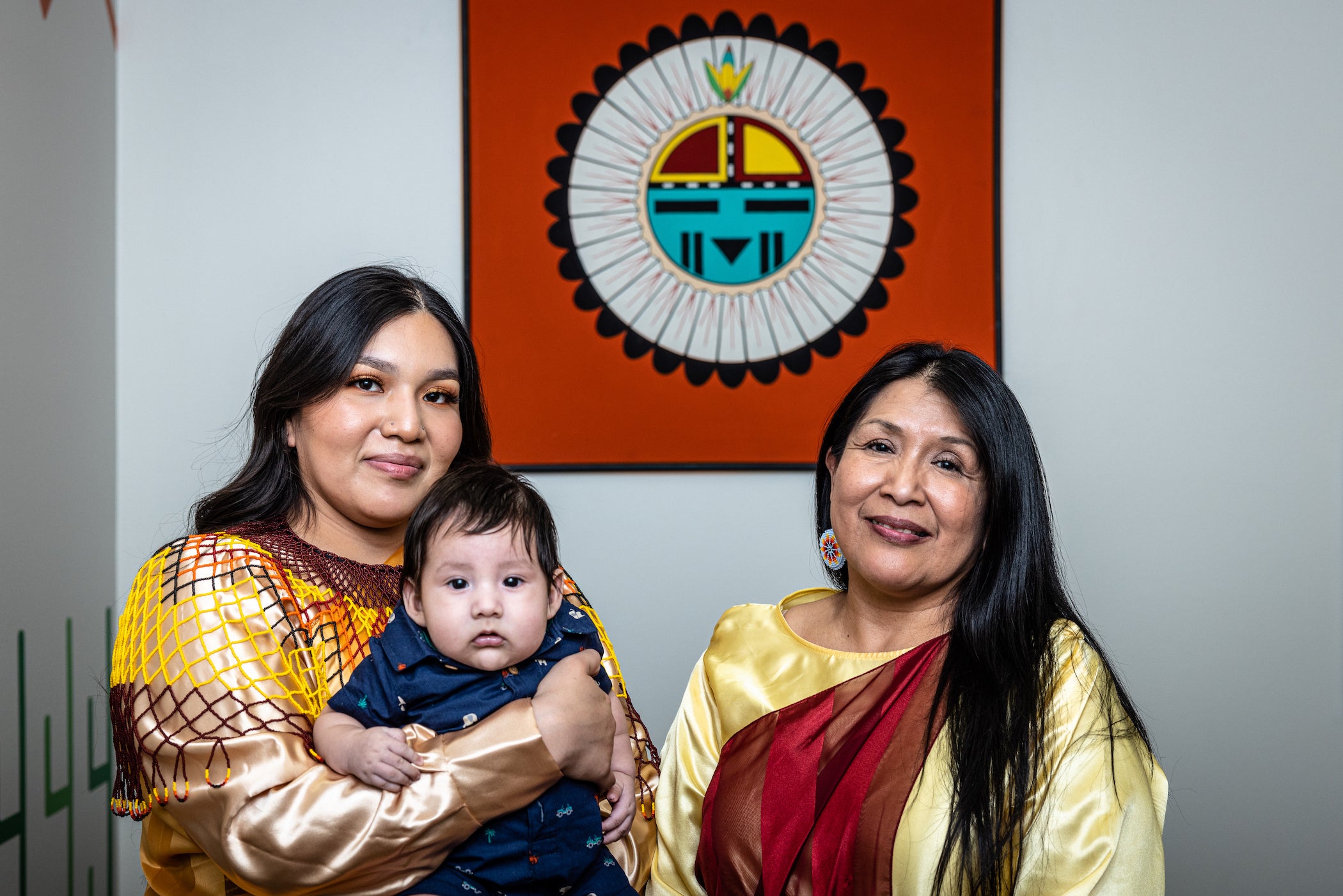Editor's note: This story is part of a series of profiles of notable spring 2022 graduates.
Arizona State University student Danica Marshall has options.
After ASU’s May 9 commencement, the psychology undergraduate is considering a law degree, a real estate career or opening a business with her mother.
That was inconceivable to her four years ago.
“Before I entered college, I was very undecided which education path I would take or how it would be paid for,” said Marshall, a Native American from the Havasupai tribe. “Thanks to ASU, they helped me resolve both issues.”
Marshall, who is a second-generation college graduate, was able to attend ASU through the Havasupai Promise Scholarship. The program covers admitted undergraduate recipients for full-time enrollment for five consecutive academic years and admitted graduate recipients for full-time enrollment for three consecutive academic years.
Her mother, Lorena Yaiva, previously graduated from ASU with a bachelor's and master’s degree through the same scholarship program. Today she is a prosecutor for the Hualapai Tribe in northwestern Arizona.
Psychology graduate Danica Marshall (left) with her three-month-old son, Leonel Vasquez, plans to apply to law schools with her mother, Lorena Yaiva-Jones (right). Photo by Charlie Leight/ASU Newss
Marshall spoke with ASU News before commencement to talk about her academic career and what her future looks like.
Question: What was your “aha” moment, when you realized you wanted to study psychology?
Answer: I was undecided at first but I was always interested in learning more. Once I took my first psychology class at Scottsdale Community College, I was intrigued to learn more. There’s so many different avenues in the discipline such as clinical psychology, social psychology and child development. I also wanted to learn more about myself, so it was useful to me.
Q: What’s something you learned while at ASU?
A: I’ve learned so many things here but one of the biggest lessons was just to go for it, with anything you want to, even if you think you can’t do it or won’t be good at it. In the beginning, I didn’t know if I could handle ASU coming from a community college. But I gave it a try and now I’m here and almost finished.
Q: Why did you choose ASU?
A: I choose ASU because it was close to home and I was already a bit familiar with the campus since my mom also attended.
Q: What’s the best piece of advice you’d give to those still in school?
A: Give it a try even if you don’t know exactly what you want to study. You might end up somewhere you never expected. I would also tell students not to procrastinate in regards to their studies. Just stay on top of things and you’ll get good results.
Q: What was your favorite spot on campus?
A: My favorite spot was the Memorial Union because it was close to all the food spots. I enjoy being outside, so that’s where I often ate. It gave me a sense that I was on a break and relaxed.
Q: What are your plans after graduation?
A: After I graduate, I’d like to take a break from school while I prepare to apply for law school and spend as much quality time with my baby, Leonel, before he gets too big. My mom and I recently took a weeklong workshop called ASU Pathway to Law Initiative. We also talked about opening our own business or getting into real estate. There’s a couple of things we want to do together.
Q: If someone gave you $40 million to solve one problem on our planet, what would you tackle?
A: If someone gave me $40 million, I would want to tackle our waste issue. I feel like we need to figure out some ways to be less wasteful as a whole and also figure out a way to recycle waste efficiently. Not only are we contaminating our lands with waste but we are also contaminating our water/ocean.
Top photo: Psychology graduate Danica Marshall. Photo by Charlie Leight/ASU News.
More Science and technology

Student sees how AI can assist people with vision loss
Partial vision loss can make life challenging for more than 6 million Americans. People with visual disabilities that can’t be remedied with glasses or contacts can sometimes struggle to safely…

Newly identified viruses found in dolphins
In a new study, researchers from Arizona State University together with national and international collaborators have identified anelloviruses in dolphins for the first time. Anelloviruses are a…
ASU Interplanetary Lab celebrates 5 years of success
Five years ago, an Arizona State University student came up with the idea of creating a special satellite in what was then the newly built Interplanetary Laboratory. The idea was to design…

